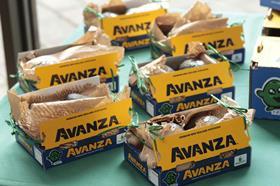
All was not lost for New Zealand’s avocado sector in a season that stakeholders are referring to as a “short crop” year.
Industry projections put the total export crop at around 2.5m trays (5.5kg), short of the pre-season forecast of 3m trays and some 2m trays down on the previous season’s record crop.
The reduction, in tandem with unforeseen under-supply from Western Australia, resulted in a well-publicised price hike in the Australian market post Christmas, however, it did little to diminish customer and consumer demand in markets across the globe.
“The size profile had a good spread enabling us to serve a full spectrum of customers and markets each with unique size demands, and we also enjoyed a “good vintage” from a quality standpoint,” said Steve Trickett, spokesperson for leading New Zealand avocado exporter Avanza. “Customers in a number of markets indicated it was perhaps the best fruit they had received for a number of seasons.”
Demand from Asia was particularly notable, with Avanza again the largest New Zealand supplier into this region by a considerable margin.
Japan continues to be the company’s cornerstone market in the Far East, with a steady supply of fruit entering the market between September and January.
“Avanza was responsible for 100 per cent of the exports made to Japan from New Zealand in 2015/16, demonstrating our commitment to this key market despite crop shortages,” Trickett explained
Prospects are high for increased programmes into Japan during the upcoming 2016/17 season, after a late season market visit by Avanza marketing executives highlighted how well the New Zealand product had been received.
The neighboring South Korean market also offers plenty of promise for the New Zealand industry going forward, following the completion of a free trade agreement between two countries in late 2015. A three per cent tariff reduction was applied in December upon signing, followed by a further three per cent in January this year. A three per cent reduction will continue to be applied each January until the entire 30 per cent duty is reduced to zero by 2024.
South Korean appears to be showing strong signs of growth on the back of consumer demand for a healthy and nutritious fruit that hasn’t been seen in the market before.
“With a significant population of relatively wealthy consumers and trade that prefers medium to large sized fruit which NZ primarily grows, the South Korean market is a priority market for both the NZ industry and Avanza,” Trickett said.



